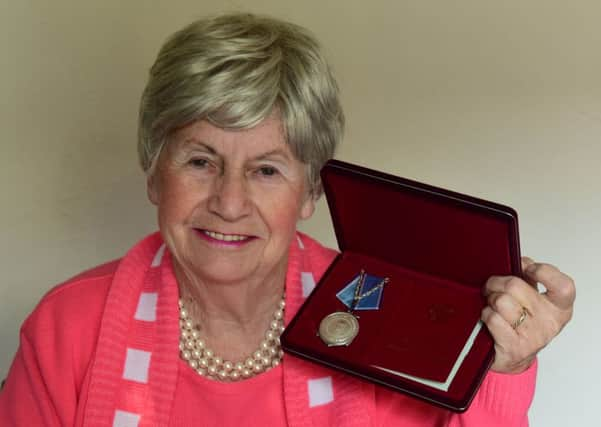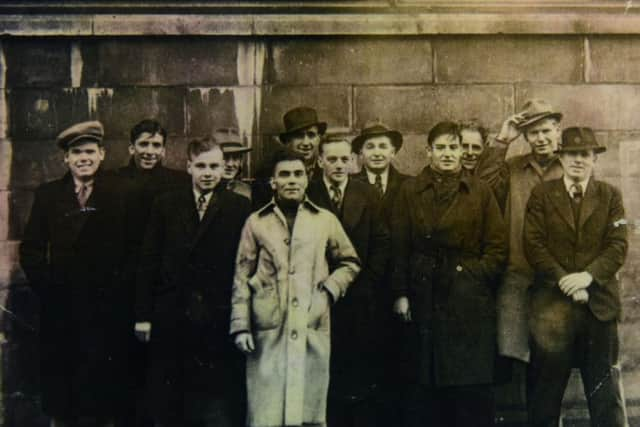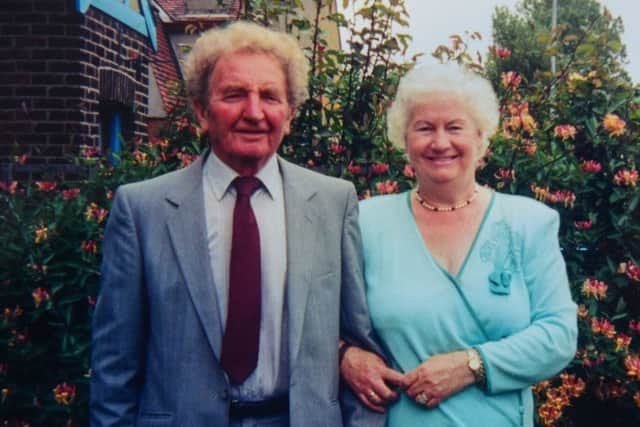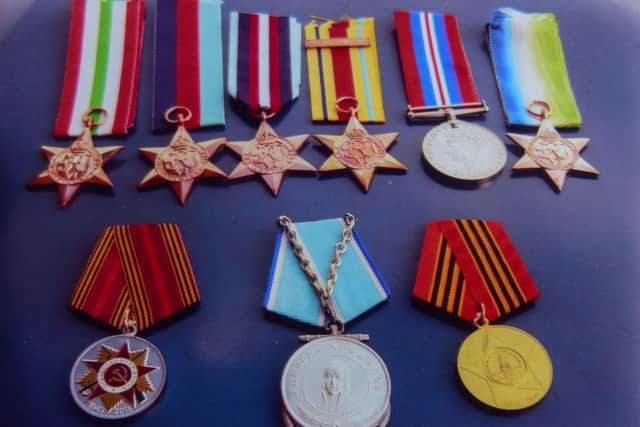Salute to a hero seaman of the dangerous Russian convoys


During the dark days of the Second World War, he watched friends and colleagues go to their deaths.
The Sunderland man has just been honoured by Vladimir Putin with medals for his role in the Russian convoys.


Advertisement
Hide AdAdvertisement
Hide AdJohn is no longer with us, and we are indebted to his wife Maureen Brook for sharing his story.
It was a gruesome war for John Brook.
And it was a stark contrast to his upbringing in the arms of a loving family in Burleigh Street and North Moor Street.
Two generations of his family made sure he had lots of support.


But from leaving Moor Board School when he was 14, the sea beckoned for this Sunderland lad.
Advertisement
Hide AdAdvertisement
Hide AdHis first voyage on the Devon Sea lasted for two years and took in America, China, Japan, Vladivostock, Vancouver and back home via Panama.
He got back to the UK just weeks after war was declared. From then on, his voyages were infinitely more dangerous.
He sailed with the Russian convoys on the British Unity and the Beacon Street. The horrors of war soon became all too real.


He was on the British Unity in the Bay of Biscay when an enemy submarine torpedoed a support ship in his convoy. His ship picked up 22 survivors.
Advertisement
Hide AdAdvertisement
Hide AdLife on the Beacon Street was no less dramatic. It sailed with a British fleet taking food and supplies to the starving Russians.
But on one voyage alone, nine ships were lost out of a convoy of 12 and John watched as five sank. Few men survived in the icy waters where more than 30 seconds in the sea meant certain death.
And when the flaghip commander sent a message saying: “Well done ocean convoy”, the reply from John’s ship was “what’s left of it.”


On another occasion, John stepped in to man a machine gun when the sailor next to him was injured. It was all part of doing your bit for the war effort.
Yet despite the horror of war, John had luck on his side.
Advertisement
Hide AdAdvertisement
Hide AdIn one instance, he and his uncle Stephen – who had been serving on SS Horseferry – were posted on separate ships to avoid two family members being lost together.
On its next voyage, the SS Horseferry went down, with all hands lost.
And after he signed off from service on the Beacon Street, the ship was blown up on its very next voyage.
Fortune favoured him again when a U-boat torpedo hit the next vessel he was on, the Sunderland-built Empire City, on August 6, 1944. The crew escaped in a lifeboat just before a second torpedo sent the ship to the sea floor.


Advertisement
Hide AdAdvertisement
Hide AdBut John didn’t completely escape injury during his war years. He was launching a lifeboat from the Stan Lodge when both his hands became caught in the ropes and were badly burnt.
He was sent to an American hospital in Casablanca before eventually returning home via Gibraltar.
When VE Day finally arrived, he was in the French town of Port-De-Bouc, where a local gave him and a friend a bottle of spirits each to celebrate freedom.
The years may have passed, but the Russian Federation never forgot his service.
Advertisement
Hide AdAdvertisement
Hide AdAnd in a letter received by Maureen, but addressed to John, it said: “The comradeship-in-arms, which was born at the truly critical juncture of history, will forever remain an important part of European spiritual heritage and our bilateral relationship, including the ties between the two navies.
“On the instructions of President Vladimir Putin, I have the honour of presenting to you Commemorative Medal marking the 70th anniversary of the Victory in the Great Patriotic War.”
The campaign to get John’s Russian Convoy medal brought thanks from Mrs Brook to Ann Howdon (John’s cousin) and Houghton and Sunderland South MP Bridget Phillipson.
John, who died aged 90 in 2012, was an honorary member of the Friends of Sunderland Old Parish Church – The Rector Gray Society.
Advertisement
Hide AdAdvertisement
Hide AdAnd in words given to them, he said he was lucky to come home in one piece when some of his friends did not, although he added “he would never forget them.”
Nor will we forget the men who braved the seas heroically, including John Brook.